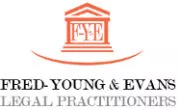

An application for registration is made by supplying the necessary information of the product or service by completing the requisite registration form.
Nigeria Consumer Protection
The Consumer Protection (Products and Services Monitoring and Registration) Regulations 2005 ("the Regulation") which was promulgated pursuant to the powers conferred on the Consumer Protection Council ("the Council") by Section 31 of the Consumer Protection Council Act ("the Act") stipulates the requirements for registration of products and services by the Council. The Regulation provides that products manufactured, imported, advertised, sold, distributed in Nigeria shall be registered by the Council.
An application for registration is made by supplying the necessary information of the product or service by completing the requisite registration form. The completed registration form shall be accompanied with a non-refundable registration fees as may be determined by the Council. Nevertheless, products which have been registered or subject to be registered by the National Agency for Food and Drug Administration and Control ("NAFDAC") or any other regulatory body of the Federal Government may be exempted from paying registration fees or pay reduced fees.
If the Council is satisfied with the information supplied by the applicant, it shall issue a Certificate of Registration ("the Certificate") which shall be valid for a period of 5 years or such other period or extension as the Council may prescribe. Upon issuance of the Certificate, the Owner of the product registered with the Council is mandated to promptly respond to consumer's compliant and act on them with 14 days from the date of receipt of such compliant. On the other hand if the Council is not satisfied with the information supplied by an applicant in its registration form, it shall inform the applicant the reasons for its disapproval and the applicant would resubmit a fresh application.
The Council reserves the right to suspend, withdraw or cancel the Certificate at any time if the information upon which the product or service was registered was incomplete or false; the circumstance on which the product was registered no longer exist, the conditions for registration has been contravened; or the standard of quality for registration of the products are not complied with. The original Certificate shall be produced within 2 days of demand by the Council.
The Regulation provides that any person who contravenes the provisions of the Regulation shall be prohibited from carrying on manufacture, distribution, sale, advertisement and importation of the product completely or for such a period as the Council may determine in addition to payment of fine of N 50,000. It is therefore important for Owners of products manufactured in Nigeria, imported to Nigeria, advertised within Nigeria, sold or distributed in the Nigerian market to duly register their products with the Council before commencing business.
It is interesting to note that the Council has made giant strides towards the protection of consumers' rights in Nigeria. In 2015, the Council issued Volkswagen Nigeria a 7 days ultimatum to provide information on the status of its vehicles as regards the emissions of cheating software which is reported to have affected 11 million cars worldwide. The Council went on a nationwide sensitization campaign to checkmate smuggled poultry products in the Country. Upon numerous complaints of subscribers to Digital Satellite Television ("DSTV"), in July 2015 the Council commenced investigative sittings into the operations of Multichoice Nigeria, the franchise owners of DSTV. In August 2015, the Council waded into a complaint of a customer of excess bank charges by First City Monument Bank. The Council also investigated the activities of VIP Express Tourism Limited, a Nigerian hospitality company upon receipt of complaints that the operations of the company is against the rights of their subscribers.
In spite of these achievements, there is still so much work to be done. The Nigerian market is flooded with substandard products and products which are not registered with the Council. Many Nigerian consumers are not aware of their consumer's rights or how to enforce them. It is difficult for the Council to suspend the business activities of big multi-nationals such as DSTV or MTN in proven cases of abuse of consumer's rights. It is also difficult for the Council to enforce consumer rights against Federal Government agencies which are mandated to provide essential services to the citizenry.
It is therefore important for the Council's task force to intensify their efforts by going from market to market and shops to shop to ensure that products sold to Nigerian consumers are not substandard and duly registered with the Council. More sensitization campaign should be carried out in schools, churches, mosques, televisions and radio stations to create awareness on the rights of consumers. The Council must be attentive to complaints against the products of foreign or local companies, big and small enterprises, private establishments and government agencies if it is to adequately achieve its statutory mandate.
The content of this article is intended to provide a general guide to the subject matter. Specialist advice should be sought about your specific circumstances.